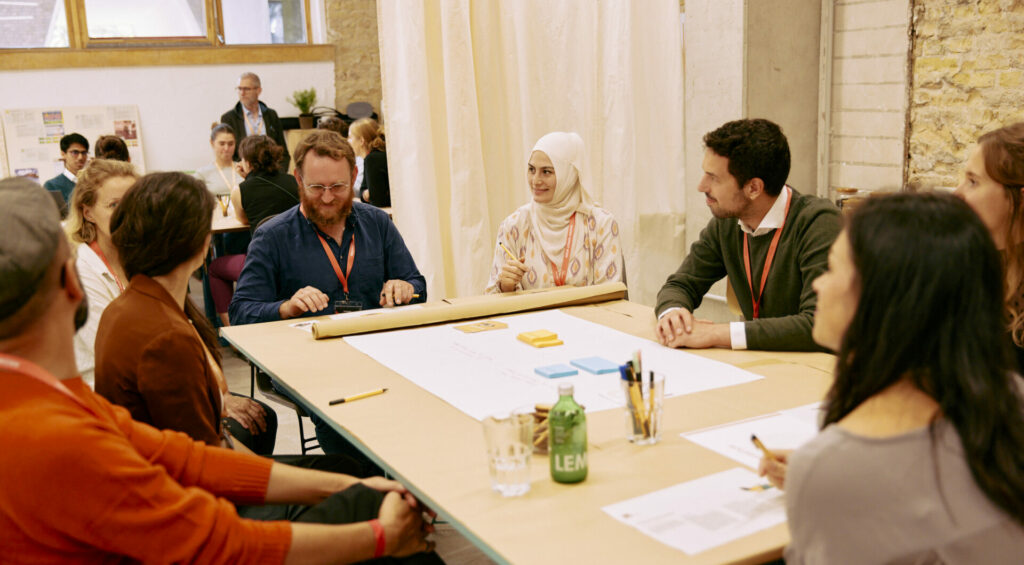From sustainable food trends to action: Enabling collective action in the sustainable food ecosystem
At the first ever Impact Entrepreneurship Forum, we put the sustainable food trends (published last August in collaboration with TrendWatching) back into the hands of the changemakers driving those trends and the stakeholders we need to bridge the gap between trends and creating more sustainable future realities.
We strongly believe that trends can help us navigate through changing times, into futures we want to create for healthy people and the planet. However, at Impact Hub Berlin, we understand that sharing knowledge is not always enough. We need to build communities of collective action and facilitate meaningful collaboration. We do exactly that through our startup programmes and growing impact ecosystems with our innovator community and events, such as the Impact Entrepreneurship Forum.
In this blog, we share how in the Sustainable Food track of the Impact Entrepreneurship Forum, we helped facilitate some of the impactful connections necessary to accelerate the transformation of the food system. Keep reading to uncover the outcomes of the in-depth discussions at the forum of our trend research, let them spark new ideas for collective actions and impactful levers in your work.
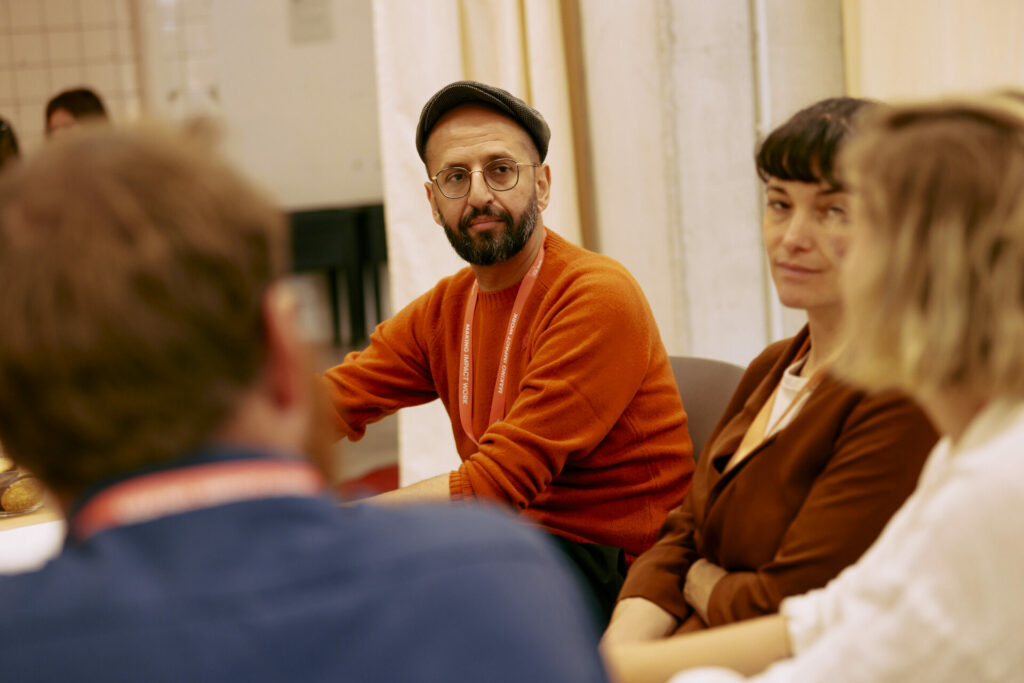
Enabling collective action
In order to facilitate effective collective action, we believe that there are three key components: diverse stakeholders, credible resources, and a shared challenge or vision.
That’s why, in the Sustainable Food track of the Impact Entrepreneurship Forum, we brought together corporate, government, finance, research, and entrepreneur players from across the food ecosystem in two inspiring formats:
1. Three mission-focused roundtables centered around identifying the action gap between the megatrends that emerged from our research and visionary future food systems.
2. An immersive exhibition showcasing some of the innovations highlighted in our Sustainable Food Trends 2023 report.
Through these formats, stakeholders were able to interact directly with information and inspiration rooted in robust research methodologies and establish a shared goal, hence enabling effective collaboration.
To guide and inspire the discussions, we invited some of the changemakers featured in our research, including Marie Populus, Sustainability & Sourcing Project Coordinator at Supercoop, and Felix Virmani, Country Manager at Marktschwärmer, and Nishit Agrawal, Co-Founder of SkoneLabs. As trend drivers, these pioneering innovators are perfectly positioned to offer a view on the remaining impediments to growing our collective impact.
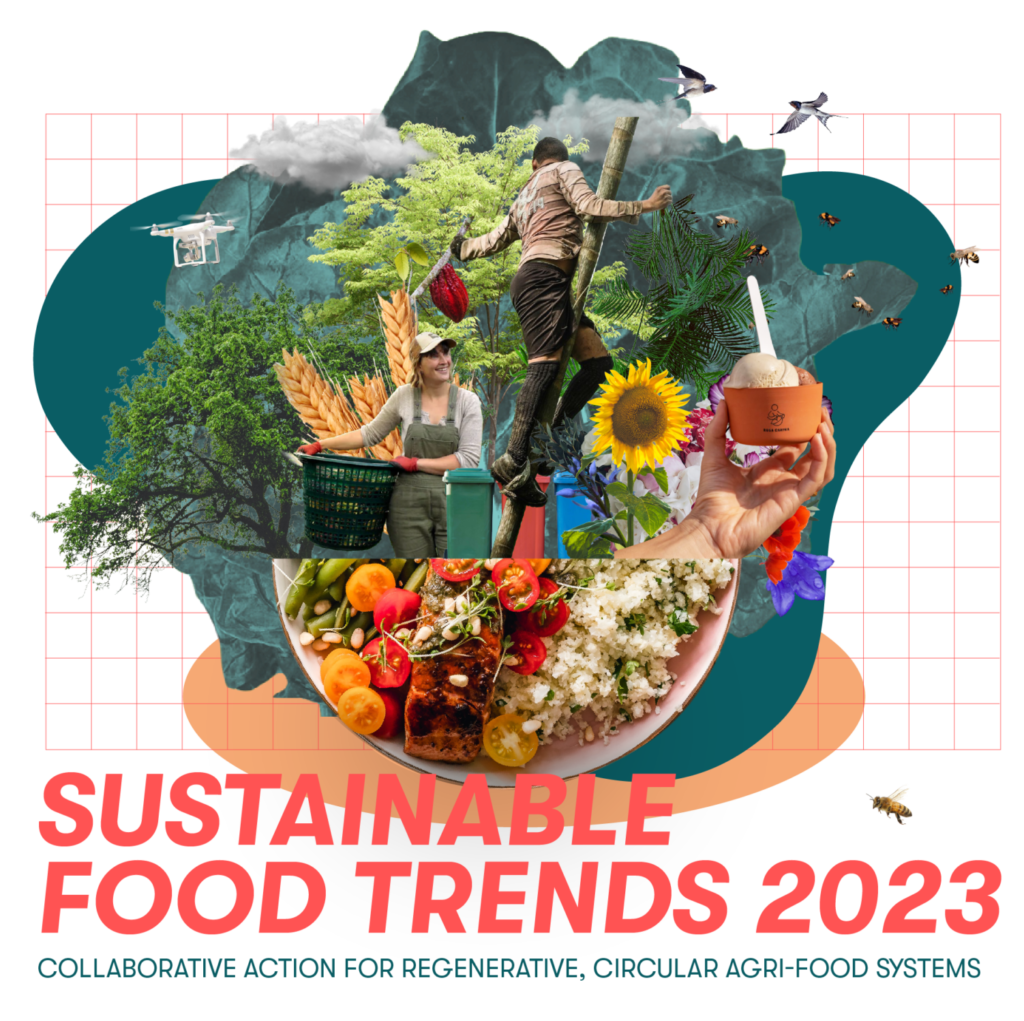
Introducing the megatrends
We identified three trends that are driving change in the sustainable food system in the DACH region right now. These framed the call for collective action in the Sustainable Food track of the Impact Entrepreneurship Forum:
- Megatrend 1 – Local Resilience
- Megatrend 2 – Regeneration Generation
- Megatrend 3 – Impact on Display
You can dive into the drivers, innovations and opportunities of each megatrend in our Sustainable Food Trends 2023 report. Or, if you’re looking for a shortcut, read on for an overview of each megatrend and crucially, the outcomes of the roundtable discussions. That is, the remaining impediments and required actions necessary to grow our collective impact and create a sustainable future food system.
Megatrend 1 – Local Resilience
The concentration of power over the food system in a few corporations, combined with recent crises such as the coronavirus pandemic, has exposed the vulnerability of global supply chains. Consumers are looking to reclaim control over how and where their food is produced, and as much as possible, shop and eat locally. This is driving the trend of local resilience.
Why now?
Out of stock signs, boarded-up small businesses and soaring food prices have exposed the vulnerability of our current system. As a result, global supply chains face increasing scrutiny by consumers, also revealing the countless injustices in the way in which our food is produced and distributed.
Through social networks and digital media, we are more connected and more informed than ever before. Of course, this carries the risk of disinformation, but in general, we are much more aware of the processes through which our food arrives on our plate and, more importantly, the people involved.
Consumers are shifting their focus closer to home to benefit from local food systems which are more environmentally and socially sustainable and can also offer a greater sense of security.
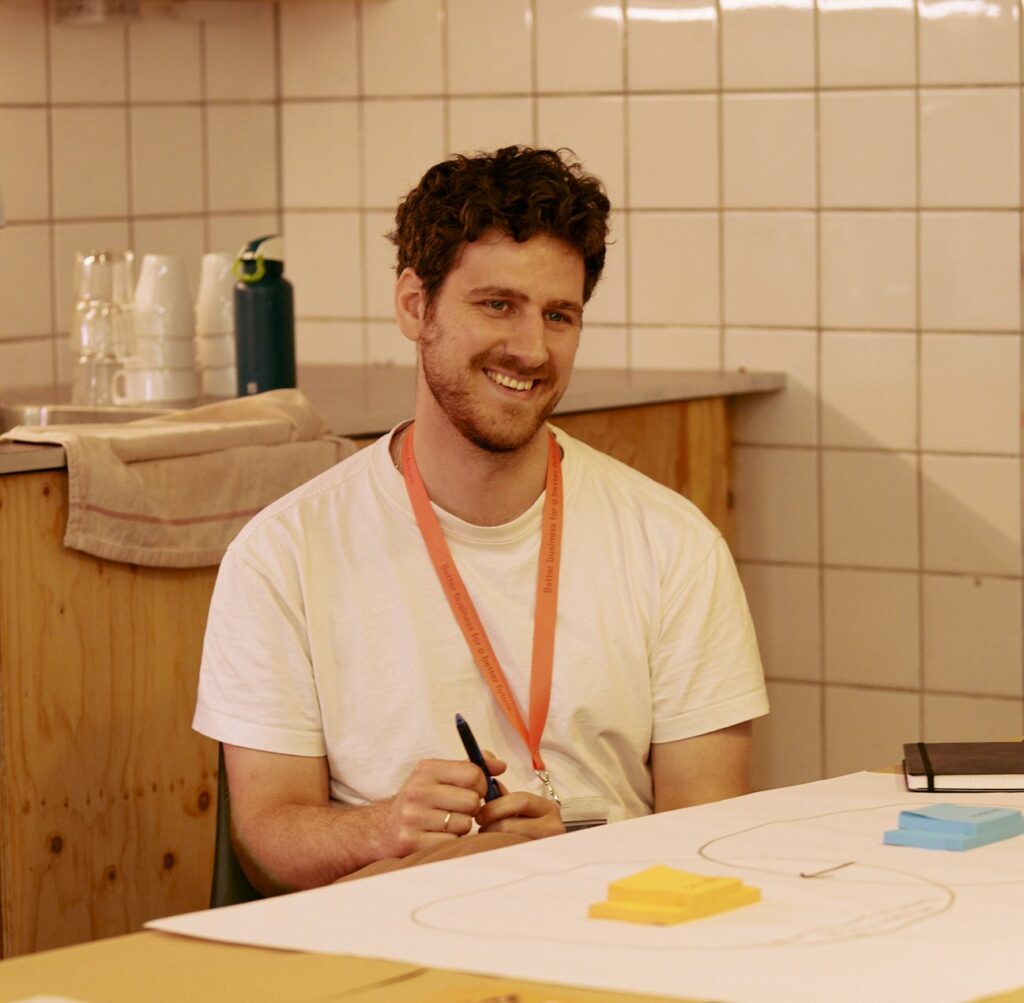
What next?
The shift towards greater local resilience presents several opportunities for innovators from across the ecosystem. From enabling and empowering communities to reclaim processes and decision-making around their food, to fostering closer relationships between consumers and their food or the farmers producing their food, together we can create more sustainable, more resilient food systems.
Innovators should look back, in order to move forward – to times when localised food systems were the norm rather than the exception. Now we have the chance to combine our cultural food heritage and community-based approaches with rapidly advancing technology, to create a future which is rooted in our past, while securing the health and wellbeing of generations to come.
At the roundtable on Local Resilience at the Impact Entrepreneurship Forum, the group agreed that there is still a way to go to reach this reality. In order to create local resilience in food systems, we need:
- More cooperation with bigger players, particularly large corporates
- Better marketing to reach and educate consumers and push them towards demanding more transparency
- Improved local infrastructure to make local supply chains possible, scalable and financially viable
Understanding these needs is just the first step in collective action. We also have to find the right path from the present to the future we want to create. An effective way of doing this is by asking the right questions – questions which highlight the problem and potential impact fields, without leading innovators to an immediate solution, but instead creating a springboard for co-creation between different actors.
In design thinking we might call these problem or challenge statements. These statements bring diverse stakeholders together and create a shared vision or mission. One way of framing these is through ‘How Might We’ questions – a great tool that we believe can help us progress from trends to action.
At the forum roundtables, we asked the group to create this springboard by aligning the needs and impediments they had identified through ‘How Might We’ questions. These are the questions that came out of the roundtable on local resilience:
- How might we improve marketing and communications to reach and educate more consumers about local resilience, and provide the necessary information and transparency for them to take ownership over their food choices?
- How might we build the necessary regulatory and logistical infrastructure to support local farmers and promote regional food systems?
- How might we best work with farmers to provide value on both ends of the value chain, the consumer and the producer?
What ideas for innovation and collaboration do these questions inspire from you? Leave a comment or get in touch with our Head of Sustainable Food, Stephanie Ries.
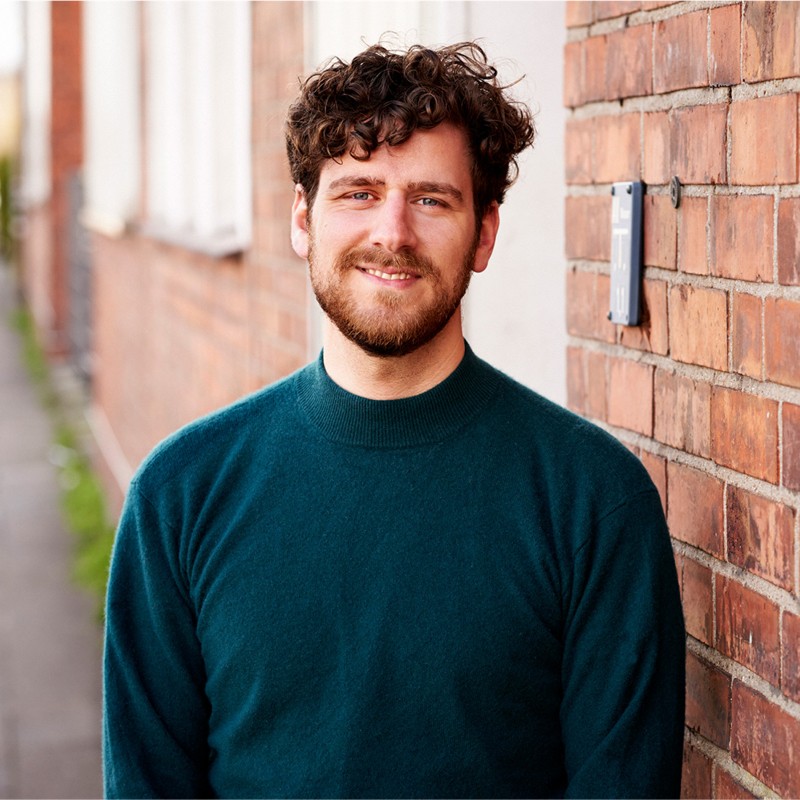
Megatrend 2 – Regeneration Generation
The call to transform the agrifood system has never been stronger – more and more consumers are waking up to the fact that the system has exploited people and the planet for too long, and the status quo is not sustainable. Instead, consumers are looking for solutions that use and promote regenerative farming methods, nature-positive processes and decolonise supply chains, while empowering local producers. It’s time to welcome in the regeneration generation.
Why now?
Shifting consumer views, political agendas, and market dynamics are nudging the agricultural system towards regenerative farming through national commitments, incentives, and investments. All of this, and more, is needed to help farmers make the costly but crucial transition to regenerative practices and bolster their resilience as well as ensure future profitability.
Organic food and beverages have already become a standard choice for many consumers and face little controversy in political arenas. However, with the continuing rise in sustainability awareness in Germany and beyond, consumers are expecting more. The growing number of climate ambassadors are no longer satisfied with just reducing their negative impact, they want to increase their positive impact.
This means finding products that give more back to nature than they take, but also food and beverages that enrich both our diets and the lives of producers from around the world.
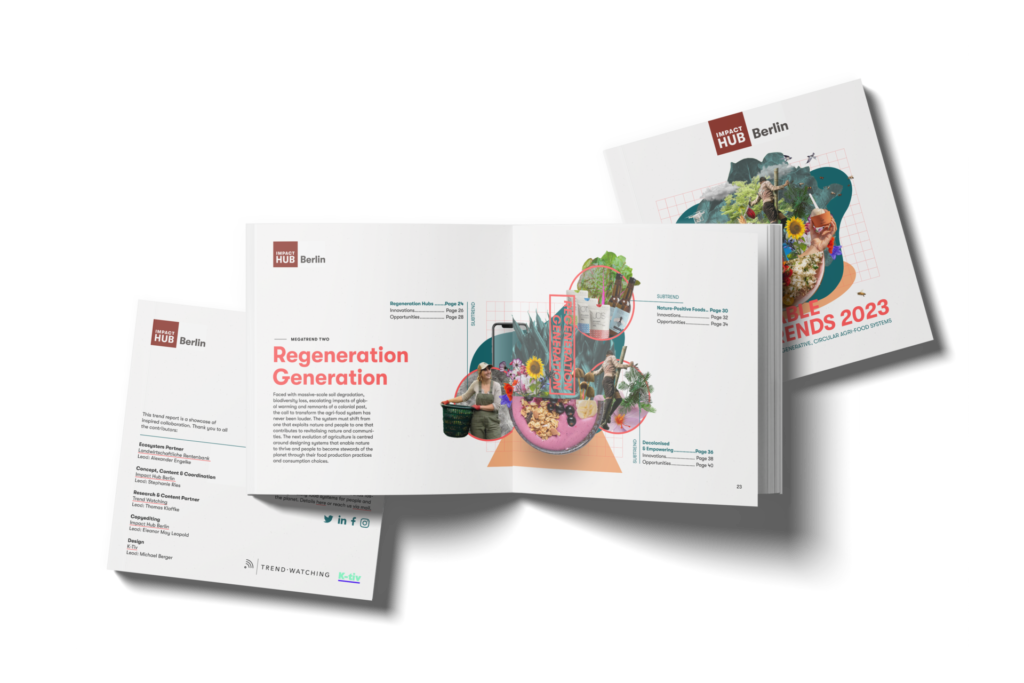
What next?
Minds and practices are shifting towards regeneration. However, greater education, financial incentives and regulatory clarity are needed to convince and support consumers and farmers to make decisions now that will future-proof businesses and lives. This presents an exciting opportunity for entrepreneurs, corporates, investors and governments to shape a new agricultural revolution. One in which we are all more connected to our food, the soil in which it grows and the people that grow it.
The roundtable discussion at the Impact Entrepreneurship Forum reinforced the benefits of regenerative practices. Felix Grünziger and Karlotta Ahrens – Co-Founders of FoodTogether, and recent participants of our Feeding the City programme – joined us, providing expert insights on regenerative agriculture.
The cross-ecosystem group highlighted several opportunities to reduce carbon emissions and increase social development. As well as offering safer approaches to production that develop soil structure and drive resilience and biodiversity, regenerative practices also bind more CO2 and enhance the quality of produce.
The benefits are clear. However, the stakeholders we invited to the discussion also identified several needs that still need to be addressed to realise the potential of the Regeneration Generation trend.
Here are the ‘How Might We’ questions that framed the mission of those around the table at the forum and we hope can frame further collective action from across the ecosystem.
- How might we best support farmers in order to accelerate the transition to regenerative agriculture through funding, education, regulation or standardisation?
- How might we bolster and expand the market for the sale of regenerative produce in order to increase the attractiveness, viability and scalability of regenerative practices?
- How might we inform and connect producers and consumers to educate them about the benefits and opportunities of regenerative agriculture, and create long-lasting behaviour change?
Megatrend 3 – Impact on Display
Across industries, consumers expect brands and products to live up to their sustainability claims. In the food ecosystem too, exactly how sustainable (or not) a product is, needs to be quantified, verified and communicated. Consumers are also looking for innovative alternatives to food and packaging – whether it’s giving food a second life or making packaging to break rather than fill up landfill sites. The call is clear: brands and producers need to put their impact on display.
Why now?
Companies have known for a long time that consumers want, through their purchases, to feel like they are having a positive impact on the world. However, rather than impact, this knowledge led to a stream of (at best) misrepresented and (at worst) fraudulent claims that overwhelmed and misdirected consumers. Greenwashing scandals and failed certifications are rampant and people have lost trust in businesses’ commitment to climate action.
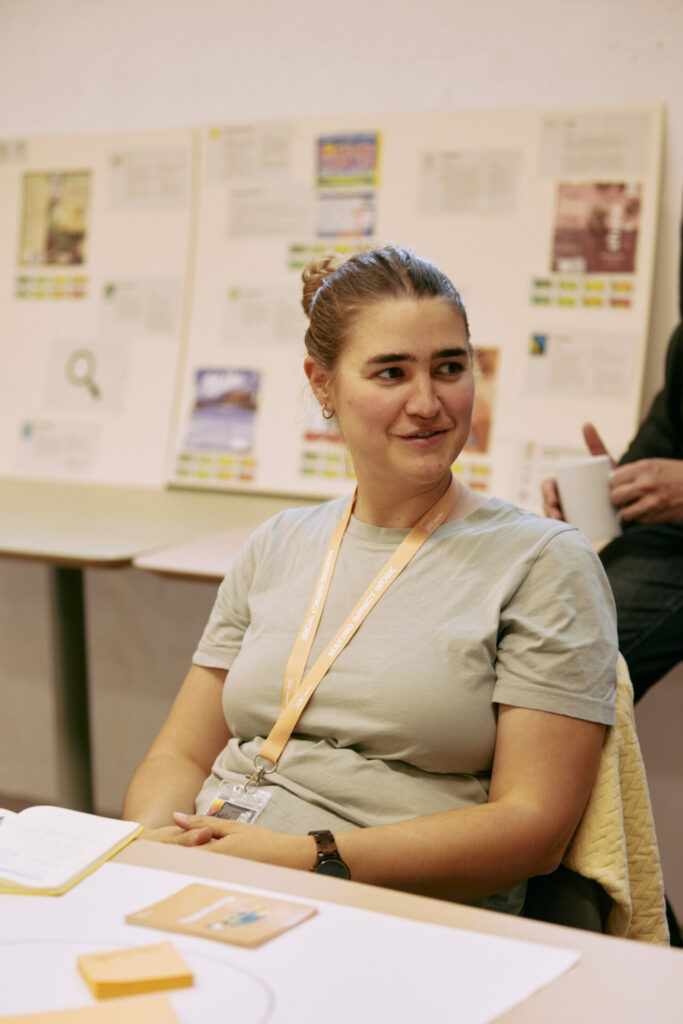
The term ‘sustainability’ is also of course widespread. Most of us assume to know what is meant when we talk about sustainability. Yet, ‘What does sustainability mean?’ is still one of the most common sustainable-related searches on Google. Combine this with an expanding vocabulary of climate terms and labels, such as ‘climate neutral’, ‘carbon positive’ and ‘upcycled’, many people are left feeling confused and unable to discern real impact from greenwashing.
Some innovators have already realised the problem of businesses' disputable sustainability claims and the indisputable problem of food and packaging waste, and translated this into products with very tangible impact. From turning food waste into tasty by-products, to plastic-alternatives that are designed to disappear, scientific and technological advancements are readying us for a new wave of food and beverage products.
What next?
Despite a willingness to change consumption habits, shopping sustainably at your local supermarket is not an easy task. Independent (often unsubstantiated) sustainability labels, influential designs and the appeal of price discounts in a worsening economy, often pull consumers in the wrong direction.
Corporates, governments and consumers need to band together to standardise carbon and environmental labelling, remove jargon and incentivise companies to use more sustainable, made-to-break packaging.
While there are already several exciting innovations that you can read about in the full Sustainable Food Trends 2023 report, the roundtable on ‘Impact on Display’ highlighted that there are still several open questions and challenges that need to be addressed. Thanks to our guests Laura Kromminga, Julia Knack, and René Wienholtz, for their insightful inputs, as well as our moderator, Nishit Agrawal, for helping guide the discussion to the definition of shared challenges that can focus collective action in this area:
- How might we accelerate the standardisation of environmental and carbon labeling in a way that fuels measurable impact without limiting innovation through unnecessary regulation?
- How might we ensure that the numbers related to the sustainability of food and beverage products are graspable and believable, and effectively change consumer behaviour?
Do you have an idea for how we might address these challenges that you want to discuss and develop with other stakeholders in the sustainable food system? Reach out to Stephanie to explore how we can help you.
From trends to action
The Impact Entrepreneurship Forum was a pinnacle moment where we brought together diverse key stakeholders and readied the food system for collective action. Our work does not stop there, though. With the outputs of the roundtable discussions, we now have the shared challenge set we need to turn our trend research into action.
But we need to help – impact cannot happen in isolation. If any of the ‘How Might We’ questions triggered your interest, reach out to us, and let’s see how we could collaborate and shape future realities we want to see. Or simply dive deeper into the sustainable food trends that we’ve discussed today and get to know the changemakers who are turning them into reality in our Sustainable Food Trend Report.
